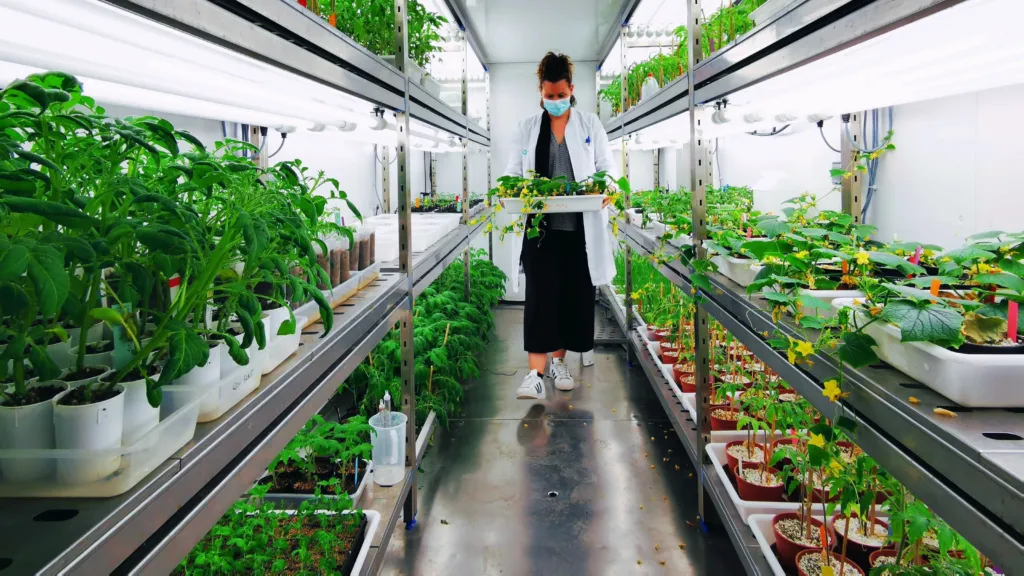In the heart of Belgrade, a groundbreaking study is reshaping our understanding of sustainable agriculture and the potential of biostimulants. Led by Jelena Pantović from the University of Belgrade’s Faculty of Agriculture, the research delves into the synergistic effects of cultivation methods and seaweed-based biostimulants on iceberg lettuce, offering promising insights for the agricultural sector.
The study, conducted over two years, explored the impact of a seaweed-derived biostimulant, Kelpak, on the growth and phytochemical properties of iceberg lettuce. Pantović and her team investigated various application methods, including seedling soaking and foliar treatments, across different seasons and cultivation environments—greenhouse and open field.
The results were striking. “The application of biostimulators, particularly through the seedling soaking method, contributed to an increase in plant mass and greater biomass accumulation,” Pantović explained. This finding is a game-changer for farmers seeking to enhance crop yield and quality. The study also revealed that foliar treatments enabled better plant development in both spring and autumn seasons, with greenhouse cultivation providing more stable growth and superior quality compared to open fields.
The nutritional value and stress resistance of the lettuce were also significantly improved. The biostimulators boosted the content of photosynthetic pigments and antioxidants, making the plants not only healthier but also more resilient to environmental stresses. This is particularly relevant for the energy sector, as sustainable agriculture practices can reduce the carbon footprint and enhance food security, which are critical components of a sustainable energy future.
Pantović’s research, published in the journal *Notulae Botanicae Horti Agrobotanici Cluj-Napoca* (translated as “Notes of the Botanical Garden of the Agricultural University Cluj-Napoca”), highlights the potential of seaweed-based biostimulants to revolutionize agricultural practices. The findings suggest that integrating these biostimulants into farming routines could lead to more robust and nutritious crops, ultimately benefiting both farmers and consumers.
As the world grapples with the challenges of climate change and food security, this research offers a beacon of hope. By leveraging the power of biostimulants, farmers can achieve higher yields and better-quality produce, while also contributing to a more sustainable and resilient agricultural system. The implications for the energy sector are profound, as sustainable agriculture practices can help reduce greenhouse gas emissions and promote a more circular economy.
Pantović’s work is a testament to the power of innovation in agriculture. Her findings not only advance our understanding of biostimulants but also pave the way for future developments in sustainable farming practices. As the agricultural sector continues to evolve, the integration of seaweed-based biostimulants could become a cornerstone of modern farming, driving productivity and sustainability hand in hand.

